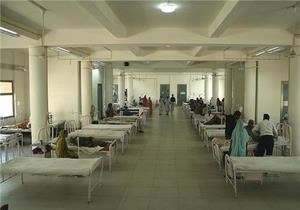
Healthcare Institutions Must Register Under Clinical Establishment Act 2024: Gujarat Govt
The state health Department has launched an extensive campaign to ensure compliance, with a deadline set for March 12, 2025. Institutions failing to register within the given timeframe could face penalties of up to Rs 5 lakh. As part of this regulation, all medical practitioners and healthcare professionals running clinics must also register.
Am officials said that the directive applies to allopathy, ayurveda, homoeopathy, and Unani medical institutions providing healthcare services.
As per the official data, as of February 11, 2025, a total of 16,698 healthcare facilities across Gujarat have completed either permanent or provisional registration.
Of these, 14,647 institutions have completed online registration, including 1,882 government and 5,268 private healthcare centres. The registered facilities include 12,028 allopathy hospitals, 1,622 ayurveda centres, and over 3,000 homoeopathy hospitals and clinics.
Additionally, 566 clinical laboratories, 28 dialysis centres, and various physiotherapy and dental clinics have been registered under the act.
The government aims to streamline healthcare operations, enhance service quality, and ensure accountability within the sector. With the approaching deadline, the Health Department urges all unregistered medical facilities to comply with the new regulation to avoid penalties and ensure uninterrupted operations.
The state now boasts 319 Community Health Centers (CHCs), 1,463 Primary Health Centers (PHCs), and 6,575 sub-centers, reflecting a 41 per cent increase in PHCs and a 37 per cent rise in CHCs since 2001-02.
Additionally, the number of medical colleges has grown from nine in 2001 to over 30 in 2023. The Gujarat Hospital Management Information System (GHMIS) reports that 35 hospitals are currently operational under its purview, with 17 being teaching hospitals.
Collectively, these institutions have recorded over 91 million outpatient registrations and approximately 9 million inpatient registrations. Despite these advancements, challenges persist. Healthcare services for the tribal populations in Gujarat remain inadequate, with reports of systematic exploitation by both legitimate and illegitimate practitioners.
Furthermore, disparities in maternal health services are evident across districts. For instance, the percentage of women receiving four or more antenatal care visits ranges from 56 per cent in Banaskantha to 95 per cent in Navsari.

Legal Disclaimer:
MENAFN provides the information “as is” without warranty of any kind. We do not accept any responsibility or liability for the accuracy, content, images, videos, licenses, completeness, legality, or reliability of the information contained in this article. If you have any complaints or copyright issues related to this article, kindly contact the provider above.
Market Research

- Manuka Honey Market Report 2024, Industry Growth, Size, Share, Top Compan...
- Modular Kitchen Market 2024, Industry Growth, Share, Size, Key Players An...
- Acrylamide Production Cost Analysis Report: A Comprehensive Assessment Of...
- Fish Sauce Market 2024, Industry Trends, Growth, Demand And Analysis Repo...
- Australia Foreign Exchange Market Size, Growth, Industry Demand And Forec...
- Cold Pressed Oil Market Trends 2024, Leading Companies Share, Size And Fo...
- Pasta Sauce Market 2024, Industry Growth, Share, Size, Key Players Analys...


















Comments
No comment